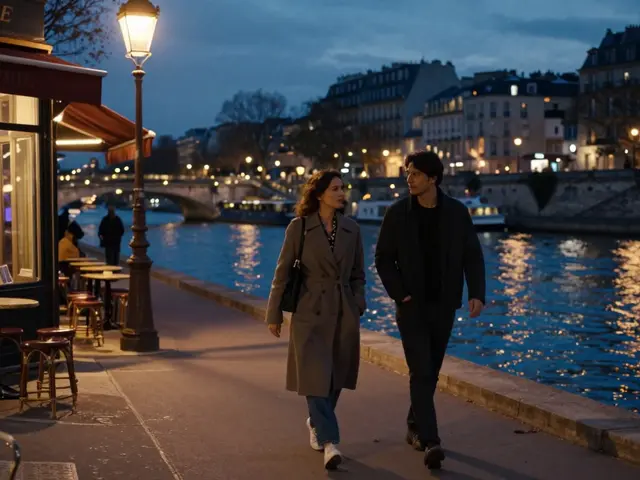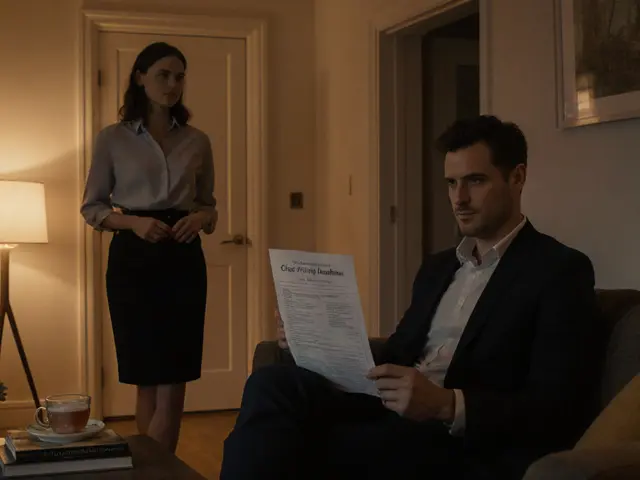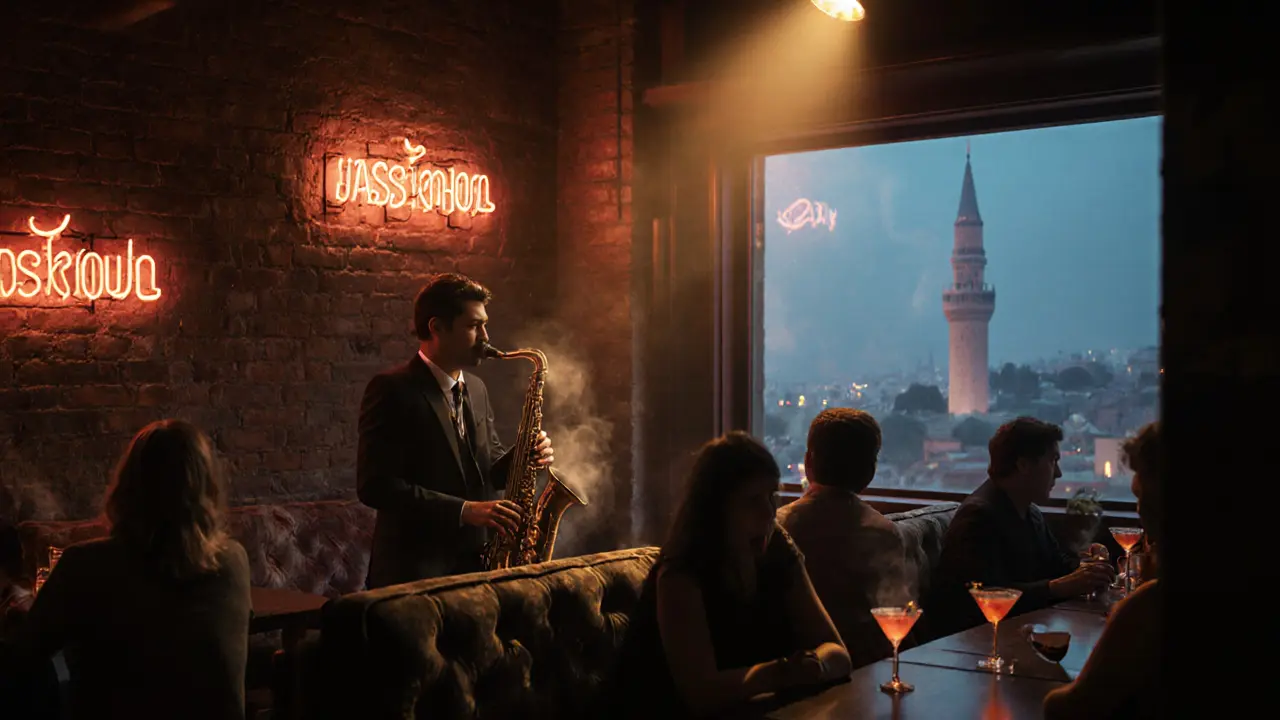
When the sun sets in Istanbul, the city doesn’t sleep-it transforms.
Most tourists leave after seeing the Hagia Sophia and the Grand Bazaar, but the real magic of Istanbul happens after dark. This isn’t just about drinking or dancing. It’s about sipping raki on a rooftop with the call to prayer echoing over the Bosphorus, stumbling into a hidden jazz club in Kadıköy, or dancing until dawn in a converted warehouse where the bassline feels like it’s coming from the earth itself. Istanbul’s nightlife isn’t one thing-it’s a hundred different experiences, layered like the city’s own history.
Start in Beyoğlu: The Heartbeat of the Night
Beyoğlu is where the city’s pulse is loudest. İstiklal Avenue is packed with people, but don’t walk the whole stretch. Head down the side streets. Galata is the real playground. Neon is the place to be if you want live music without the club noise. It’s a small, dimly lit venue where Turkish jazz and indie rock blend into something raw and real. Locals know it. Tourists rarely find it unless someone shows them the way.
Just around the corner, Bar 66 sits above a bookshop. The rooftop has a view of the Galata Tower, and the cocktails are made with local herbs-thyme, sumac, even dried mulberry. Order the İstanbul Sour: gin, lemon, honey, and a splash of pomegranate molasses. It tastes like the city.
Try the Rooftop Scene: Views That Last Longer Than the Drinks
There are dozens of rooftop bars in Istanbul, but only a few feel authentic. 360 Istanbul is the most famous, but it’s crowded and overpriced. Skip it. Instead, go to Asitane Rooftop on the edge of Sultanahmet. It’s quiet, elegant, and serves Ottoman-inspired drinks like rosewater lemonade and saffron-infused vodka. The view? The Blue Mosque lit up at night, with the Bosphorus shimmering behind it.
For something grittier, head to Chill Out in Karaköy. It’s on the 12th floor of an old warehouse. The music is deep house, the crowd is a mix of artists, expats, and Turkish creatives, and the drinks are cheap. You won’t find a menu-just tell the bartender what mood you’re in, and they’ll make you something unexpected.
Don’t Miss Kadıköy: The Alternative Side of the City
If Beyoğlu feels like a party, Kadıköy feels like a conversation. It’s on the Asian side, and the vibe is slower, smarter, and more local. The streets are lined with tiny bars, record shops, and cafés that turn into cocktail lounges after 10 p.m.
Bar Pasha is the most talked-about spot here. No sign. Just a red door. Inside, it’s all velvet couches, dim lighting, and live poetry readings on Thursdays. The bartender doesn’t speak much English, but he’ll make you a drink with Turkish black tea and smoked salt. It’s strange. It’s perfect.
For live music, Levha is the spot. It’s a converted garage with a stage that’s barely bigger than a dining table. Bands play everything from Kurdish folk to experimental electronic. No cover charge. Just bring cash for drinks and a sense of curiosity.
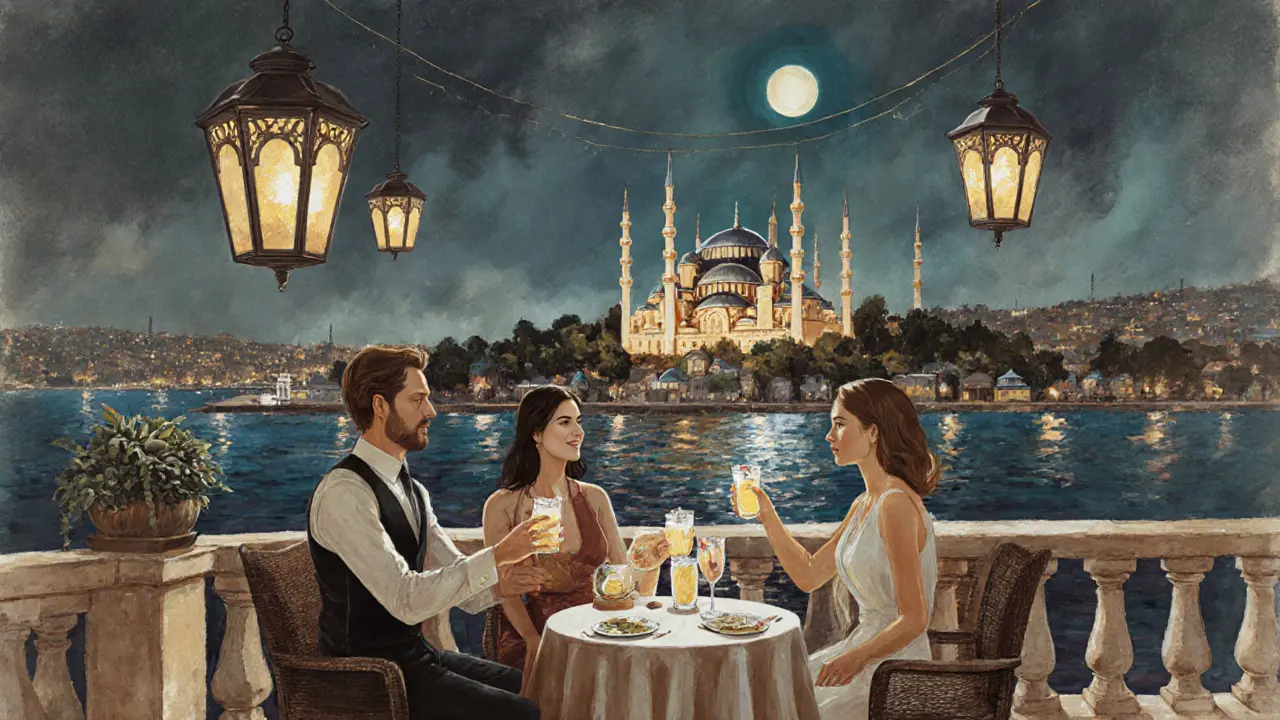
Clubbing in Istanbul: Where the Bass Drops and the Rules Don’t Apply
There are two kinds of clubs in Istanbul: the ones that look like they’re in Berlin, and the ones that feel like they were built by accident. The first group includes Reina and Kasa. Big names, international DJs, velvet ropes. They’re fine if you want to see and be seen. But if you want to feel something, go to Uzun in Moda.
Uzun doesn’t advertise. You find it by following the bassline down a narrow alley behind a fish market. The dance floor is concrete. The sound system is homemade. The crowd? Everyone from university students to retired sailors. The music? House, techno, and Turkish rhythms mixed together until you can’t tell where one ends and the other begins. It opens at midnight and doesn’t close until the sun rises. No one checks IDs. No one cares what you’re wearing.
Traditional Nightlife: Raki, Meze, and the Art of Slow Drinking
Not every night needs a DJ. Some nights need a bottle of raki, a plate of meze, and a view of the water. Çiya Sofrası in Kadıköy is the best place for this. It’s not a bar. It’s a family-run restaurant that serves 30 types of meze, from grilled eggplant to stuffed mussels. Order the raki with ice and water. Watch how it turns milky white. Let it sit. Sip slowly. Talk to the people next to you. They’ll probably invite you to try their favorite dish.
For a more classic experience, head to Çarşı in Beyoğlu. It’s been open since 1972. The walls are covered in old photos of musicians and poets. The owner, Mehmet, still serves drinks at the bar. He’ll tell you stories about the 1980s, when Istanbul’s underground music scene was born right here. Ask him for the Yeni Raki-it’s his own blend, aged in oak barrels.
What Not to Do: Avoiding the Tourist Traps
There are places that prey on visitors. Avoid anything on İstiklal Avenue that says "Live American Band" or "All You Can Drink for 20 Euros." Those are for people who don’t know better. The same goes for "Turkish Night Shows" with belly dancers and fake folklore. They’re staged, overpriced, and disconnected from real Istanbul culture.
Also, don’t assume the nightlife ends at 3 a.m. Most places in Kadıköy and Galata stay open until 6 a.m. or later. The police don’t shut things down unless someone’s causing trouble. If you’re still awake at 4 a.m., you’re not alone. You’re in the right place.
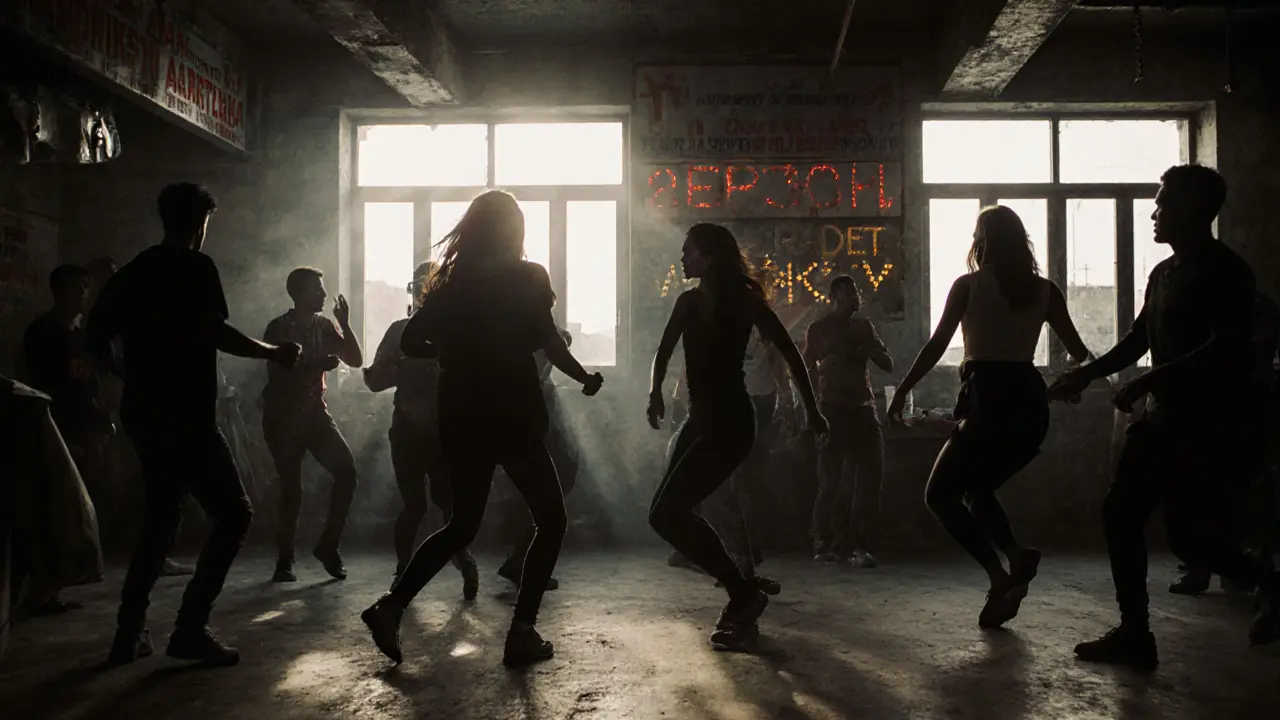
Getting Around: The Night Bus and the Ferry
Public transport runs late, but not always reliably. The night buses (N1, N2, N3) go from Taksim to Kadıköy and back. They’re cheap and safe. But the best way to move between sides of the city is by ferry. The last ferry from Karaköy to Kadıköy leaves at 1:30 a.m. It’s quiet, the water is calm, and the lights of the city reflect like fireflies on the surface. It’s the most peaceful way to end-or start-a night.
When to Go: Seasons Matter
Summer is the peak. June to August is when the city explodes. Rooftops overflow. Beach clubs like Kumkapi Beach open on the shores of the Sea of Marmara. But it’s hot. Crowded. Expensive.
Spring and fall are better. April, May, September, and October offer perfect weather. The crowds thin. The prices drop. The music gets better because the locals are back in town. Winter? Don’t write it off. December and January are quiet, but that’s when the real insiders go. Jazz clubs host intimate sets. Bookstores turn into poetry bars. The city feels like it’s yours alone.
Final Tip: Let the City Lead You
The best nights in Istanbul aren’t planned. They happen when you wander off the map. Follow the sound of a ney flute drifting from a courtyard. Turn down a street that looks empty. Ask someone what’s happening tonight. They’ll point you to a place you’ve never heard of-and it’ll be the one you remember forever.
Is Istanbul nightlife safe for solo travelers?
Yes, Istanbul’s nightlife is generally safe for solo travelers, especially in areas like Beyoğlu, Karaköy, and Kadıköy. The streets are well-lit, locals are friendly, and police presence is visible near popular spots. Avoid isolated alleys after 2 a.m., and don’t carry large amounts of cash. Public transport runs late, and ferries are a reliable way to get back to your hotel. Trust your instincts-if a place feels off, leave.
What’s the legal drinking age in Istanbul?
The legal drinking age in Turkey is 18. ID checks are rare in small bars and clubs, but larger venues like Reina or Kasa may ask for identification. Alcohol is sold in convenience stores until midnight, but some shops near mosques or religious areas may close earlier. Don’t drink on the street in conservative neighborhoods-it’s not illegal, but it’s frowned upon.
Do I need to dress a certain way for Istanbul clubs?
There’s no strict dress code. In trendy spots like Asitane Rooftop or Neon, smart casual works. In underground clubs like Uzun, jeans and a T-shirt are fine. In Kadıköy, people dress like they’re hanging out with friends-comfortable and cool. Avoid flip-flops and shorts in upscale places, but don’t feel pressured to wear formal wear. Istanbul’s nightlife values personality over polish.
Can I find English-speaking bartenders in Istanbul?
In tourist-heavy areas like Taksim and Karaköy, yes. Many bartenders speak basic to fluent English. But in local spots like Bar Pasha or Çarşı, English is rare. That’s part of the charm. Learn a few Turkish phrases-"Teşekkür ederim" (thank you), "Lütfen" (please), and "Ne önerirsiniz?" (What do you recommend?) go a long way. Most people appreciate the effort.
Are there any all-night venues in Istanbul?
Yes. Uzun in Moda, Bar 66 in Galata, and Çarşı in Beyoğlu often stay open until sunrise. Some rooftop bars serve coffee and tea late into the morning. If you’re still going at 5 a.m., you’ll find people sipping tea, listening to vinyl, and talking about life. It’s not a club. It’s a moment.
